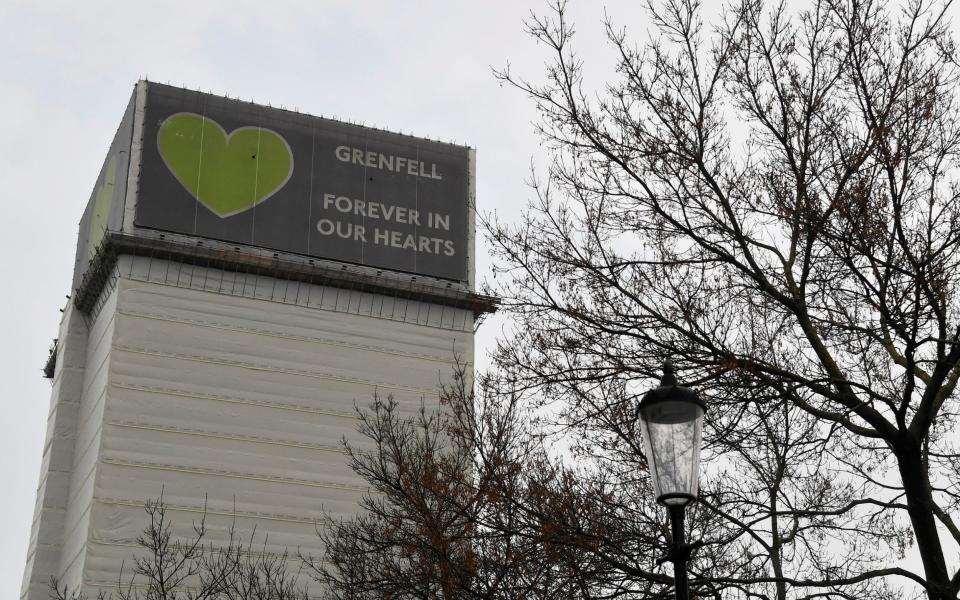Michael Gove takes a wrecking ball to builders’ bottom line in cladding clash

Peter Truscott and Dean Finch are not usually figures associated with compromise. Truscott, chief executive of Crest Nicholson, has infamously fought the Government over environmental protections against housebuilding, while Finch, the head of rival Persimmon, is well known in the housebuilding industry for his colourful language and a direct approach.
Despite these reputations, both developers signed to agree to Government terms on cladding proposals last week, on the final day before Michael Gove's deadline.
Crest has claimed it was forced into submission by threats to make business impossible, while Persimmon couldn't face further public anger following its former boss Jeff Fairburn's controversial £75m bonus, which has marred the company's public image since.
Other housebuilders, including Berkeley, Barratt, Bellway, soon followed suit and signed the pledge.
Despite the signatures, developers are still harbouring much resentment for what has been agreed – to pay to remove cladding on mid-rise tower blocks at an estimated overall cost of up to £120m.
Redrow, another signatory, and its chief executive Matthew Pratt’s logic is that the company built to the regulations at the time and shouldn’t incur financial penalties to have done so.
Both Bellway and Redrow are among the developers most affected, with both having signed away provisions worth about half their annual pre-tax profits, according to analyst Oliver Creasey at Quilter Cheviot. He warned of the double hit to developers from costs associated with cladding remediations, combined with growing house prices.
Creasey said in a note: “Further demands for mediation work may yet appear, and we are cautious on the outlook for house prices – where the cost-of-living and interest rate increases on mortgages will push affordability, and the end of Help to Buy in 2023 may also take money out of the sector.
“It is worth noting that builders are highly exposed to house prices."
Meanwhile, the two or three developers who the Government expects to oppose the agreement – out of a total 53 – are likely to face significant pushback from the higher echelons of Whitehall.

Richard Goodman, director general of the Levelling Up department, has threatened to warn consumers not to buy from developers that haven’t signed pledges.
Despite strong bravado and public pronouncements from Gove throughout the negotiation process, some threats made to housebuilders will require further legislation to go ahead. Revoking planning permission for those who refuse to comply, for instance, will require secondary legislation that could take months to enact. The Government did not comment.
As developers return for negotiations over key details which could end the cladding crisis, a more oppositional approach may be taken by housebuilders. The departure of Pete Redfern, former chief executive of Taylor Wimpey, who was front and centre of the housebuilders’ response to the crisis, could lead to a more openly critical approach from developers.
Redfern, who stepped down in December amid pressure from activist investor Elliott Management, was the public face of the housing sector’s counter offer to Gove in February 2021. This closely resembled the pledge signed by all key builders last week.
In the meantime, technical discussions will begin over the size of the remaining unpaid bill for cladding repairs.
Agreements so far will not rectify many local authority post-war buildings with cladding added for energy efficiency decades later. Some argue it is Government run, built and legislated housing which major developers have played no part in.
As one executive says: “The real battle is going to kick off - housebuilders' only concession in the pledge is covering remediations in the last 30 years rather than the last 20, which is a small move from the industry. The next stage of negotiations is the more difficult bit, because of a £4bn price tag on remaining work.”
Despite the Government claims of costs in excess of £4bn to remediate cladding, housebuilders expect the final remaining costs to come closer to £2bn, as the battle over the price tag continues.
But, contrary to some reports, the Government has not agreed to drop the £4bn in extra funds requested to fix buildings between 11 and 18 metres in height.
Sources say the argument over the remaining £4bn “will become very toxic”, as the “golden goose has laid its last remaining egg”.
While much of the noise largely focuses on large housebuilders, it is their small and medium sized counterparts that are more likely to be hit with financial difficulties. Bosses are worried about the increase of environmental regulations, which are expected to add costs of £5,000 per new build and only add to the ripple effect from cladding issues.

Research from the Home Builders’ Federation (HBF) suggests the number of affordable houses built is set to drop, as big builders pause projects and weather the storm by buying up land banks for future development.
Chief executive Stewart Bazeley, who has led the direct communications with the Government, says the time has come for other parties to pay for repairs.
“By negotiating and signing the pledge and agreeing to the £3bn Residential Property Tax the industry has more than demonstrated its commitment to the principle of polluter pays.
“Along with the House of Commons Select Committee, we have asked the Government to explain the basis of its £4bn figure which has been derived via a desktop exercise. To date, we have had no response, but it is not a figure we can reconcile.”
“With UK house builders now committed to paying at least twice already, it is our strong assertion that other parties – including material manufacturers, building owners, other residential developers, foreign developers and their UK based contractors – are asked to make contributions before the Government makes further demands on UK house builders to fix buildings with which we had absolutely no involvement. If ministers are genuinely interested in the ‘polluter pays’ principle then that seems fair.”
Red Wall MPs are also likely to face intense lobbying for housebuilders, with many of the recently elected group of Tories beating Labour opponents due to the availability of cheap, high quality housing in northern and midland suburbs.
“Michael Gove knows this is a sticky wicket”, says one industry source “In a recent roundtable with chief executives, he had his tail between his legs following his cartel comments.”
Gove had been chastised in a letter from the industry over comments labelling developers a “cartel”, initially reported by The Telegraph.
Since the initial policy was announced in January, his private role in talks have lessened. Junior ministers and civil servants have taken his place, including Lord Greenhalgh and Ben Llewellyn, the deputy director responsible for housing strategy at the Department of Levelling Up.
In spite of hostilities, the housing industry has praised Llewellyn and other civil servants for professionalism and attention to detail in what have been tough negotiations. Lord Greenhalgh’s liaison with cladding activists to find legislation-led solutions, meanwhile, has also been commended.
The central role of Llewellyn is seen as so critical that his absence via holiday signalled to some housebuilders a hiatus in negotiations, following the signing of pledges.
With pledges signed and a pause called, whether Gove targets fire on alternate businesses implicated in the crisis will determine whether key industry figures will speak out publicly against him – or if private sabre rattling will continue for months ahead.

 Yahoo Finance
Yahoo Finance 